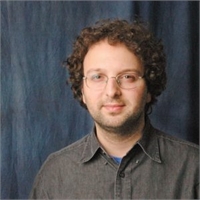Seminars
Thu |
Engineering and Measurement of Thermal RadiationProf. Mikhail Kats, University of Wisconsin, Madison, WI | |
|
Abstract: Thermal emission (thermal radiation) is the phenomenon responsible for most of the light in the universe. Though understanding of thermal emission dates back over a century, recent advances have encouraged the re-examination of this phenomenon and its applications. This talk will describe our group’s advances and outline future work in the measurement and manipulation of thermal emission. First, I will discuss our efforts to improve thermal-emission metrology, especially for low-temperature thermal emitters, emitters with temperature-dependent emissivity, and emitters out of equilibrium. Such improvements can enable techniques such as depth thermography, in which measurements of thermal emission yield temperature information below the surface of objects. Then, I will describe our use of phase-transition materials including vanadium dioxide and rare-earth nickelates to demonstrate new phenomena, including negative- and zero-differential thermal emittance, radiative thermal runaway, and thermo-dichroism. I will also discuss our recent demonstration of nanosecond-scale modulation of emissivity and thermal-emission pulses down to picosecond scales. The talk will include discussion of exciting opportunities of thermal-emission engineering for infrared camouflage and thermoregulation. Biography: Mikhail Kats is Jack St. Clair Kilby Associate Professor at the Department of Electrical and Computer Engineering at University of Wisconsin-Madison, with affiliate appointments in the Departments of Physics and Materials Science and Engineering. Mikhail’s research interests include optical properties of engineered materials, novel optical and optoelectronic devices, tailoring of thermal emission and radiative heat transfer, and related topics in optics and photonics. Prior to joining UW-Madison, he received his BS in Engineering Physics from Cornell University in 2008, and his PhD in Applied Physics from Harvard University in 2014. In 2018 and 2019, he was identified by Web of Science as a Highly Cited Researcher. His recognitions include the ONR Young Investigator Award, the AFOSR Young Investigator Award, and the NSF CAREER award, the IEEE Photonics Society Young Investigator Award, the IEEE Nanotechnology Council Early Career Award, and selections to the Forbes “30 Under 30” and ASEE Prism’s “20 Under 40” lists. Location: Online Seminar |
